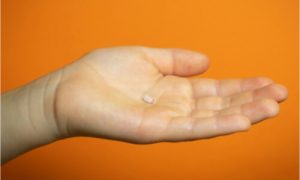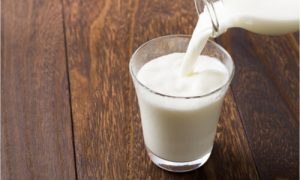If you are unfortunate enough to lose a tooth, don’t panic! There is plenty you can do to take care of the situation and hopefully preserve the tooth. In this blog post, we will discuss what to do if you lose a tooth and some tips for preventing dental emergencies in the first place. Keep reading for more information on how to provide first aid for knocked out tooth.
- Knocked out tooth: An Overview
- Knocking out a tooth: What to do
- Permanent tooth
- Baby tooth
- Cracked or broken tooth
- Important reminders
Knocked out tooth: An Overview
Accidents may happen to everyone at any age, but knowing what to do is essential. When a dental accident occurs, time is of the essence. If your teeth or mouth are knocked, and there is no visible damage, don’t just assume that everything will be OK.
Book an appointment with your dentist to be on the safe side as soon as possible.
Knocking out a tooth: What to do

Permanent tooth
If you or someone you know has a tooth (or teeth) knocked out, it’s important to remain calm and act quickly. An adult or older child who experienced a knocked-out tooth
Step 1: Locate the tooth as quickly as possible and pick it up by the crown. Handle with care – avoid touching the ‘root’ of the tooth!
Step 2: Clean it carefully if the face or her mouth is dirty. Rinse the tooth properly with some milk, or if milk is not available, rinse using tap water for only a second or two. Do not scrub or soak the tooth.
Step 3: Insert the tooth gently back into its previous position in the mouth, ensuring it is the right way around and in the right place. Compare it to the surrounding teeth to make sure you’ve got it right. Once it’s in, gently bite down on a clean piece of soft cloth or tissue to help keep the tooth in place.
If it is ‘wobbly’, then folding a small piece of aluminium foil over the area can help keep the tooth in place, or if you have your mouthguard on hand, put it back into your mouth to stabilise the traumatised tooth.
If you can’t get the tooth back in, don’t force it. Keep the tooth moist at all times by storing it in a small container with a small amount (enough to cover the whole tooth) of milk or saliva. Do not place the tooth in water. Do not wrap the tooth in tissue or cloth, as this will dry out the tooth.
Step 4: See a dentist IMMEDIATELY, ideally within 30 minutes. The sooner the tooth is replaced, the greater it will survive. Many dental practices or hospitals are open for emergencies and often have after-hours care and contact details on their website or answering machine.
Baby tooth
Babies and toddlers who have just started crawling or walking are prone to hurting themselves. Bumps, knocks and spills are all a part of growing up, but long-lasting damage can occur if your child’s avulsed teeth are injured and left untreated. Knowing how to administer dental first aid could save a young child from long-lasting damage.

Step 2: Seek an immediate dental examination because dentists are best qualified to assess the damage and recommend the correct course of action. Take the avulsed tooth with you, so your dentist can ensure that the entire tooth has been knocked out and not just a part of the tooth.
If you are unsure whether the tooth is an adult tooth or a ‘baby’ tooth, store it in milk or saliva (as described below) and visit your dentist ASAP.
Step 3: Attend regular dental check-ups so your dentist can monitor how the adult teeth are developing.
Cracked, Chipped and Broken Teeth
Teeth can be cracked, chipped or become loose from accidents, and impact injuries can cause long term damage if not quickly assessed and treated by a dentist.
If you chip your tooth, even slightly, always book an appointment to see your dentist and be sure to inform them over the phone that you’ve had an accident so they can see you as soon as possible. Try to collect any tooth fragments and transport them in milk to your dentist. Your dentist may re-attach the fractured fragments to the broken tooth if possible.
Just because you can’t see any damage doesn’t mean it’s not there. A knock to the tooth or mouth can cause ‘cracks’ in the teeth or their roots that will not be visible to the naked eye and will require an assessment by a dentist. If left unchecked, the damage caused by an injury can significantly increase the risk of infection, decay, and tooth loss. This may warrant dental surgery.
Important reminders:
- Hold the tooth by its crown (not the root)
- Ensure no dirt on the root – wash briefly under clean water if necessary.
- Gently push the tooth back into its socket.
- Hold the tooth in place by biting gently on a piece of cloth.
- See your dentist as soon as you can. But if your mouth injury affects your tongue or jaws, go to the nearest hospital emergency room immediately instead.
If the tooth cannot be reinserted into its socket:
- To save a tooth, store it in milk until the dentist can replant it.
- If milk is not readily available, store it under the lip of the injured person – taking care that they don’t swallow it by mistake.
- See your dentist as soon as you can.
Do not:
- scrub the root of the knocked-out tooth
- wrap the tooth in a dry tissue.
Remember: After a dental trauma, if you cannot find a knocked-out tooth, it is still important to have the child see a dentist as soon as possible. Whether permanent or primary, the tooth might be knocked up into the gums.
References:
https://www.uofmhealth.org/health-library/sig240330
https://myhealth.alberta.ca/Health/Pages/conditions.aspx?hwid=sig240330
https://www.mayoclinic.org/first-aid/first-aid-tooth-loss/basics/art-20056635


Recent Comments